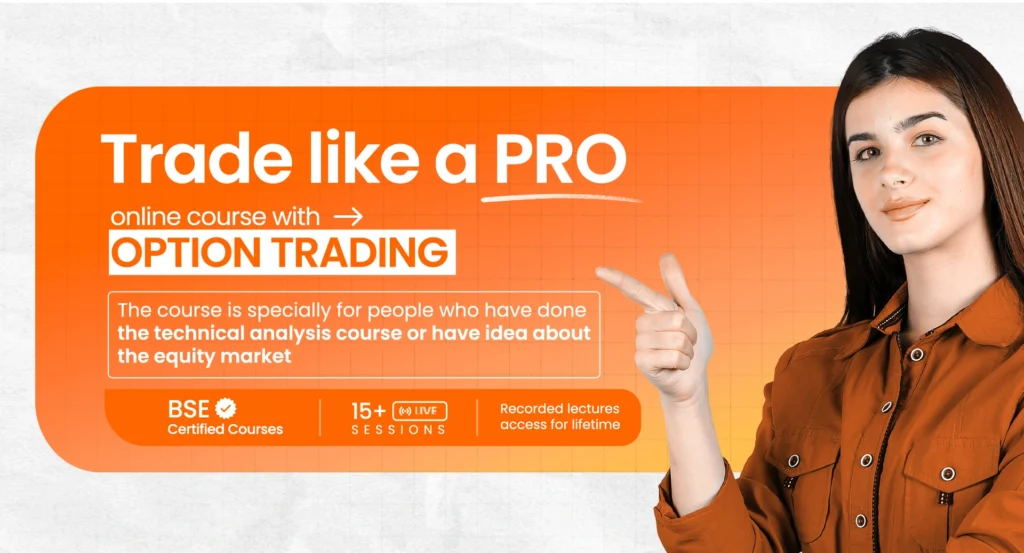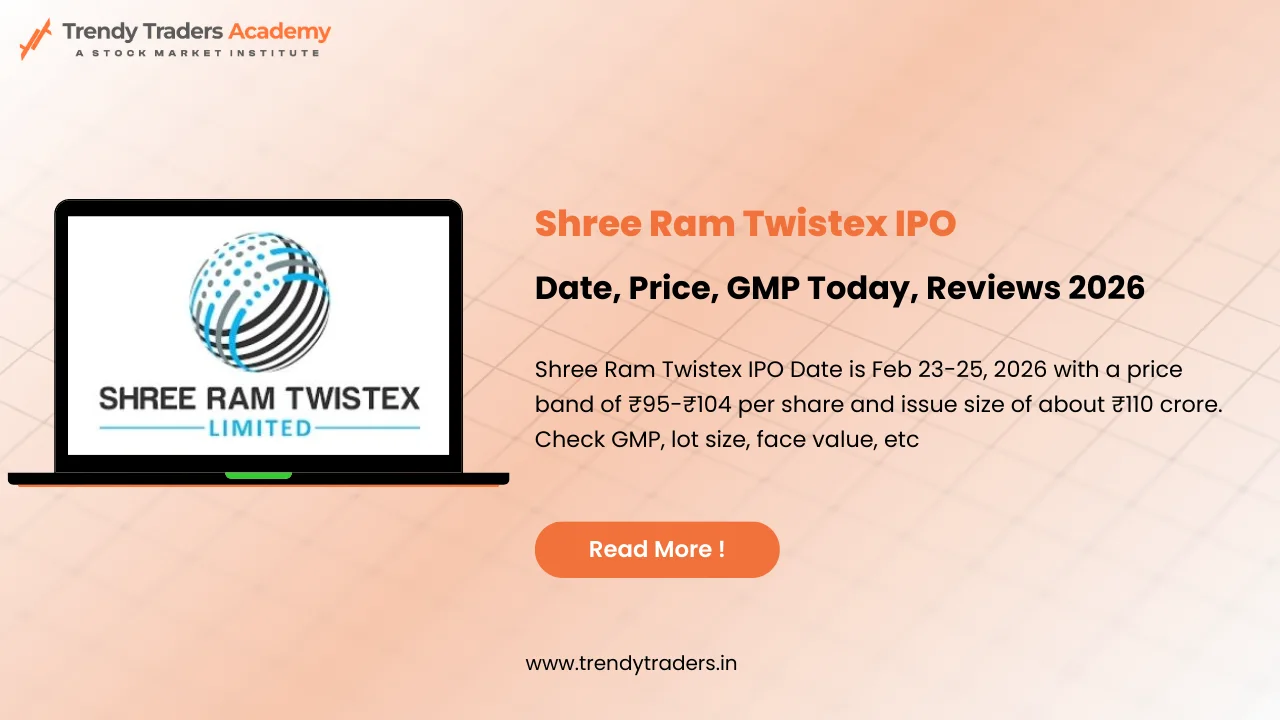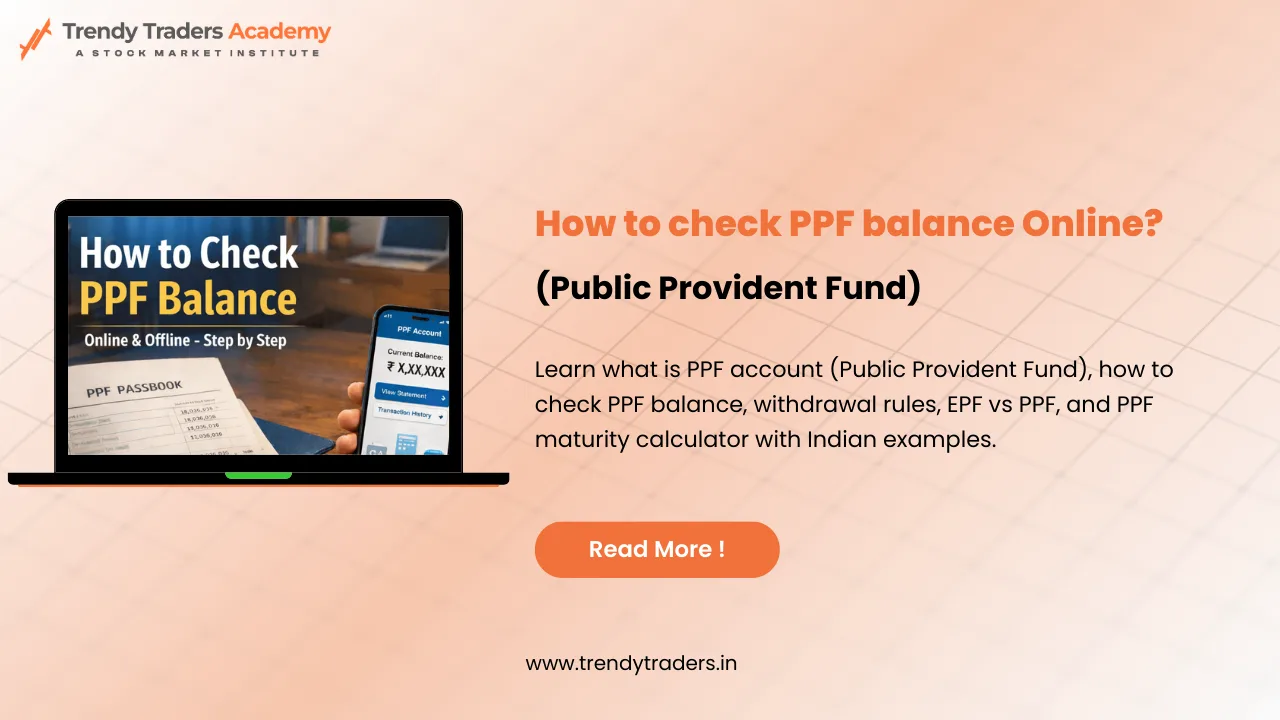
Trading Psychology: The Art of Mastering Your Mind in the Markets
Trading is never about just charts, plain numbers or feeds with news, in fact, trading is more than that. The most underestimated factor in trading is how traders think, react and control emotions while handling trades. Grasping trading psychology is vital for anyone aiming for long-term profitability. It does not matter how complex one’s trading system is, the mindset of a trader can either propel their progress or undermine their results. In this blog, we will break down in detail about trading psychology for beginners and seasoned investors together.
We’ll explore the science and art of mastering traders psychology, present real-world examples, offer practical exercises, include insightful tables, and answer the most common questions asked by traders around the world. By the end, you’ll view psychology and trading as inseparable partners on your path to market mastery.
What Is Trading Psychology?
Trading psychology is the combination of emotions, thoughts and beliefs that affect the way a trader deals with the dynamic surroundings of the markets. It also tells us how two traders, with the same opportunity in their hands, make completely different choices- sometimes with completely varied outcomes.
The Dual Nature of Psychological Trading
- Emotional Side: Fear, greed, regret, and hope can drive a trader to make irrational choices.
- Rational Side: Self-Discipline, patience, self-awareness, and objective analysis will result in higher-quality trades.
Every successful trader eventually learns that psychological trading is as vital as technical and fundamental analysis.
Why Traders Psychology Determines Market Success
The performance gap between profitable and struggling traders often traces back to mindset. Sound psychology and trading discipline help traders:
- Stick to their trading plans, even under pressure
- Resisting emotional takeovers to overtrade, revenge trade, or sell due to panic.
- Accepting losses gracefully and moving on
- Adapting consistently to changing market scenarios and conditions.
Ignoring traders psychology puts even the best trade setups at risk, as emotions takes over logic.
Common Psychological Traps in Trading
Nearly all traders encounter similar mental challenges. Here’s a quick table of frequent psychological pitfalls:
Psychological Bias | Description | Typical Result |
Loss Aversion | Avoiding small, necessary losses | Holding on to losers too long |
Overconfidence Bias | Belief in one’s infallibility | Excessive risk-taking |
Anchoring | Clinging to a price or opinion regardless of new data | Refusing to exit when signals change |
Confirmation Bias | Seeking info that reinforces existing views | Ignoring warning signals |
Herd Mentality | Copying what the crowd is doing | Entering bubbles, panic selling |
Recognizing these relatable traps is the first step in mastering psychological trading.
How Emotions Drive Trading Decisions
Fear
When it presents itself: After a string of losses, during volatile markets, or just before launching the trigger.
Effect: Missing profitable trades, early exits, inconsistent decision-making
Greed
Symptoms: Chasing behind failing trades, increasing positioning size unwantedly to recover losses or taking profits too late
Effect: Overexposure, large losses when the market turns
Hope and Regret
Hope: “It’ll come back”—leads to holding losers too long
Regret: Closing winners early, then watching them run higher
Example: The Emotional Rollercoaster
A trader might buy a stock, see it drop 5%, and hold on simply hoping for a turnaround (loss aversion). If it bounces back a little, they exit quickly to “break even,” missing the big run (regret). The cycle repeats, draining confidence and returns.
Building Resilience: Habits of Winning Traders
Developing strong psychological trading habits makes consistency possible. Here are core principles:
- Discipline: One must always follow their plan. One should never let emotions dictate entry or exit points for the trader rather the entry and exit points should be determined by the system and setup one follows.
- Patience: Wait for the right setup and not just any random opportunity.
- Self-awareness: One must take note of their emotional fluctuations and take breaks when anxiety increases.
- Adaptability: One must be flexible during trading—what functions well in one market may not work in another.
Practical Steps to Improve Trading Psychology
1. Create (and Follow) a Trading Plan
A solid plan defines one’s entry, exit, sizing of the position, and effective risk management before they take a trade. This reduces the need for split-second emotional takeovers.
2. Keep a Trading Journal
Document every trade, including:
- Reason for entry
- Emotions before and after the trade
- Outcome (profit/loss)
Example of a Trading Journal Entry:
Trade Date | Setup | Emotion Before | Result | Lessons Learned |
2025-06-15 | ABC breakout | Anxious | Loss | Missed stop-loss, don’t deviate |
2025-06-17 | XYZ reversal | Focused | Profit | Good discipline, followed plan |
Reviewing the journal reveals emotional triggers and patterns to address.
3. Practice Mindfulness and Emotional Awareness
Simple breathing exercises or short meditations before taking trades helps reset their mind, making one less likely to trade in a impulsive manner.
4. Use Position Sizing and Risk Controls
Knowing you’re risking only 1–2% of your capital per trade takes pressure off and prevents panic decisions.
The Science Behind Psychology and Trading
Studies in behavioral finance prove that even experienced traders fall prey to emotions and biases. Nobel laureate Daniel Kahneman’s work highlights how cognitive shortcuts (heuristics) increase the chance of mistakes during rapid-fire decisions.
Impact of Stress on Cognitive Performance
- Higher stress level elevates cortisol, disturbing rational judgment and focus.
- Regular high-stressful trading session weakens the quality of decisions taken as time progresses.
Tip: Scheduling regular screen breaks and non-trading days restores psychological agility.
Real-World Example: Managing FOMO and Herding
Lets assume there is a news revealing that a tech stock is rapidly rising due to introduction of a new product. Further social media buzz injects in everyone a fear of missing out (FOMO). Many traders move in to grab this very late, purchasing at higher prices- only to identify sharp reversals when the initial excitement has died. This scenario shows how herd mentality, a major part of traders psychology can vanish one’s gains.
Table: Emotional Triggers and Counter-Strategies
Emotional Trigger | Typical Reaction | Proactive Counter |
Market Volatility | Panic selling/buying | Pre-set stop-loss, smaller positions |
Consecutive Losses | Revenge trading | Take a trading break, analyze losses |
System Failure | Doubt in trading system | Review and update, not abandon |
Sudden News Event | Overreaction | Wait. Confirm with data. |
How to Build Robust Psychological Trading Skills
- Set Reasonable Goals: Unrealistic expectations increases chances of disappointment and leads to poor decisions.
- Maintain Work-Life Balance: Trading burnout gives way to impulsive choices.
- Embrace Losses as Lessons: Every loss presents data—one should never consider it as something personal.
- Celebrate Discipline Over Profits: A well-executed loss is better than a lucky win.
Integrating Psychology and Trading with Technology
Modern platforms now offer:
- Automated risk controls: Reduce emotion by setting limits in advance.
- Trading apps with journaling features: Help traders track mindset and outcomes.
- AI feedback: Some tools analyze trading habits and offer behavioral nudges.
Using technology to reinforce good traders psychology habits removes much of the emotional guesswork.
Common Misconceptions About Psychological Trading
- Myth: “I don’t have emotions when I trade.”
Fact: Emotions are normal—even useful—but unmanaged emotions are risky. - Myth: “Good traders never lose.”
Fact: Even the best traders accept and learn from losses consistently. - Myth: “Psychology matters only for beginners.”
Fact: Market legends credit their longevity to psychological mastery.
Example: Overcoming Trading Setbacks
After suffering a major loss, a trader might want to double down to “win it back” immediately (classic revenge trading). Instead, the psychologically strong trader steps away, reviews his mistakes by identifying what went wrong, and only resumes trading when the trader is thinking with a clear-mind. This pause is the most crucial part of powerful psychology and trading alignment.
Quick Strategies to Strengthen Your Traders Psychology
- Set daily trading intentions (not just profit targets)
- Visualize following your process — in profit and loss scenarios
- Surrounding oneself with disciplined trading friends
- Reviewing trades with a coach or mentor for accountability
- Reward process structure, not just outcome
Recap: Why Trading Psychology Deserves Center Stage
- The mind is a trader’s most powerful asset and at the same time a vulnerable tool.
- Mastering your response to risk, loss, and reward is foundational to market success.
- Trading psychology skills are developed through awareness, rigorous practice, and proper structure.
Conclusion
Any market participant whether a beginner or experienced pro, has to fight the same battle – emotions versus logic. Becoming a master not comes from just having a knowledge of the markets but also from understanding and self-assessing oneself. If one commits to work on their psychological trading behaviour then they can position themselves with a longer vision, steady returns and low stress even in today’s higher fluctuating markets.
One must remember that constructing and developing a robust traders psychology isnt just a task- it’s a journey. One must place faith and value on their mindset as much on their strategy, and they will end up building a solid foundation for the long-term trading future.
Also Read : Fastest Growing Stocks in India to Watch in 2025
Also Read : 7+ Best Indicators for Swing Trading
FAQ'S
What is trading psychology?
Trading psychology examines how emotions and mindset influence trading decisions, often determining the difference between success and failure.
How can I control my emotional reactions while trading?
- Use a written plan and journal
- Take breaks during drawdowns
- Limit risk on every trade
Why do so many traders fail despite good systems?
Often, discipline—rather than technical strategy—is the missing ingredient. Loss aversion, impatience, and fear override logic.
What’s the best way to start improving psychology and trading outcomes?
Self-assessing oneself regularly , practicing mindfulness , and exposure to smaller positions can help build solid confidence and emotional strength.
Are psychological biases inevitable?
Everyone has them, but awareness and structure can limit their damage. Experienced traders anticipate their own biases and prepare strategies to counteract them.










